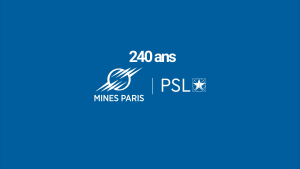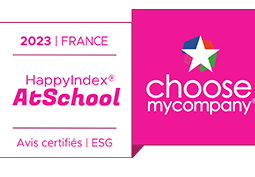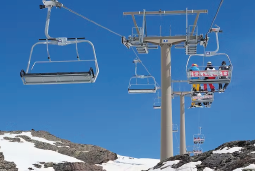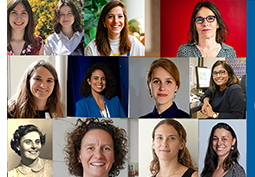Centre for industrial economics




The Chair of Research and Education on "The Economics of Gas" (ENG Chair) is a joint initiative of Paris Dauphine-PSL University, IFP School, Mines Paris Tech-PSL University, and Toulouse School of Economics. The German Institute for Economic Research (DIW) recently joined these four academic institutions.
The ENG Chair is founded as from April 1st 2016, for an initial period of five years, with the objective of progressively enlarging the perimeter of the initial founders and sponsors to other European Universities, Institutions and Industry Stakeholders. A new focus for the 2021-2026 period is the analysis of the economics of emerging gas-based technologies.
The objective of the ENG Chair is to promote research and education on the economics of natural gas.
On the research side, the ambition of the Chair is twofold: first, it acts as catalysis of research on the economics of gas; second, it eases the dialogue between academics and practitioners from the gas industry. The research activity is intended to select and develop the most important research questions relevant to understand the economics of the gas sector (using tools from economics of natural resources, industrial organization, competition and regulation, econometrics, operational research...) and of emerging gas-based technologies. The perspective of these studies can be either on the European industry or on the international gas chain. The final objective is to produce policy relevant publications in top field journals.
The research topics on which the research activity of the Chair focuses on are as follows:
· The role of natural gas in the European Energy Transition;
· The regulation and the market design of the European gas industry;
· The economic and econometric analysis of the market and transportation data in European countries;
· The role of gas in an integrated gas and electricity system;
· Green fincance and asset stranding;
· Green gas-based technologies.
On the educational side, the Chair will ease the teaching of economics of gas to graduate scholars both from economists and professionals. To this end, the Chair will create an electronic dedicated directory encompassing all the relevant courses and classes on the economics, regulation, governance, etc. of the gas industry. A special focus will be devoted to stimulate the enrollment of graduate students in projects, case studies, research reports, with the final objective of attracting them to embark on doctoral studies in the economics of the gas sector. To this end, the Chair will host a web-based platform, to ease the matching between demand and supply of different educational initiative on the gas industry, both form academics and professionals.
The sponsors of the ENG Chair are EDF-Edison, GRTGaz and TOTAL.
Guillotin, A., Bergaentzlé, C., Dussartre, V., Heggarty, T., Massol, O., Perez, Y. (2024). "Hydrogen subsidies under three pillar-frameworks: a Europe-United States multi-stakeholder comparison ", Renewable and Sustainable Energy Reviews, Vol. 211. 11528.
Bardon, P., Massol, O., Thomas, A. (2024). "Greening aviation with sustainable aviation fuels: Insights from decarbonization scenarios ", Journal of Environmental Management, Vol. 374. 123943.
Bardon, P., Massol, O. (2024). "Decarbonizing aviation with sustainable aviation fuels: Myths and realities of the roadmaps to net zero by 2050", Renewable and Sustainable Energy Review, Vol. 211. 115279.
Jagu Schippers, E., Chiquier, S., Massol, O., Lowing, D., Mac Dowell, N. (2024). "Bargaining powers in cooperative Carbon Dioxide Removal deployment", Climate policy, forthcoming.
Blanchard, A. (2024). "Strategic investments: Electrolysis vs. storage for Europe’s energy security in the hydrogen era", Energy Policy, Vol. 195.
Presty, R., Massol, O., Jagu Schippers, E., Da Costa, P. (2024). "Mapping the landscape of carbon dioxide removal research: A bibliometric analysis" , Environmental Research Letters, Vol. 19(10).
Baba, A., Ben Kebaier, S., Creti, A. (2024). "How efficient are natural gas markets in practice? A wavelet-based approach". Annals of Operation Research, Vol. 334(1), 623–677
Sesini, M., Creti, A, Massol, O. (2024). "Unlocking European biogas and biomethane: Policy insights from comparative analysis". Renewable and Sustainable Energy Reviews, Vol. 199.
Massol, O., Hache, E., Banal-Estañol, A. (2024)."Trade sanctions and international market integration: Evidence from the sanctions on Iranian methanol exports". The World Economy, 2024, Vol.47(2), 637-663
Aïd, R., Bahlali, M., Creti, A. (2023). "Green innovation downturn: The role of imperfect competition" . Energy Economics, 123, 106754
Creti, A., Geoffron, P. (2023). " Vers des échanges d'énergie «entre amis»? ". L'économie mondiale 2024, 29–42
Megy, C., Massol, O. (2023)."Is Power-to-Gas always beneficial? The implications of ownership structure". Energy Economics, 128, 107094
Nicolle, A., Massol, O. (2023)."Build more and regret less: Oversizing H2 and CCS pipeline systems under uncertainty". Energy Policy, 179, 113625
Nicolle, A., Cebreros, D., Massol, O., Jagu, E. (2023)."Modeling CO2 Pipeline Systems: An Analytical Lens for CCS Regulation". Economics of Energy and Environmental Policy, 2(2), 157-172
Grekou, C., Hache, E., Lantz, F., Massol, O., Mignon, V., Ragot, L. (2022). "Broadening Europe's gas policy, a few reflections". IAEE Energy Forum, October 2022.
Massol, O., Grekou, C., Hache, E., Lantz, F., Mignon, V., Ragot, L. (2022) La dépendance de l'Europe au gaz russe : état des lieux et perspectives. Revue d’Economie Financière, Vol. 147, 227-242.
Jagu, E., Massol, O. (2022). Unlocking CO2 infrastructure deployment: The impact of carbon removal accounting. Energy Policy, 2022, Vol. 147; 227-242.
Jagu, E., Da Costa, P., and O. Massol, 2022. Coordinating the Deployment of Bioenergy with Carbon Capture and Storage. Science and Technology for Energy Transition, 2022, Vol. 77(9), 1-13.
Grekou,C., Hache, E., Lantz, F., Massol, O., Mignon, V., Ragot, L. (2022) "Guerre en Ukraine, bouleversements et défis énergétiques en Europe." CEPII Policy Brief n° 2022-37.
P.Cramton, F. Lévêque, A.Ockenfels, S.Stoft (2022) "An EU Gas-Purchasing Cartel Framework." Note du 06.05.2022
F. Lévêque, (2022) Gaz Russe: "L'embargo total immédiat présente un inconvénient sérieux: c'est un jeu à un coup et un seul." L'Opinion 25.03.2022
F. Lévêque, F. Michelet, (2022) Embargo total ou partiel, consommer moins ... Quelles solutions pour couper dans les importations gazières de Russie ? The conversation (blog), 21.03.2022.
A. Baba, B. Sana, A. Creti, (2022) How efficient are natural gas markets in practice? A wavelet-based approach. Annal of Operation Research, forthcoming.
S. Bravo, C. Haritchabalet, (2022) Grid Storage vs Small Fuel-Cell. Working Paper.
A. Thomas, O. Massol, B. Sévi, (2022) How are day-ahead prices informative for predicting the next day's consumption of natural gas? Evidence from France. The Energy Journal, Vol.43(5).
S. Bravo, C. Haritchabalet, (2020) Prosumers or grid storage? Working Paper.
E. Dukhanina, (2020) Intégration des marchés gaziers : Europe et au-delà. La revue de l'Énergie. No. 651, Juillet-Août 2020 : 69-70.
S. Bravo, C. Haritchabalet, (2020) Investment decisions on the hydrogen transport market. Working Paper.
C. Billard, A. Creti, A. Mandel, (2020). How Environmental Policies Spread ? A Network Approach to Diffusion in the US. French Association of Environmental and Resource Economists, Working Paper Series - 2020.12.
S. Bravo, C. Haritchabalet, (2020) Public-private management of hydrogen fuel stations. Working Paper.
C. Billard, (2020). Technology Contagion in Networks. French Association of Environmental and Resource Economists, Working Paper Series - 2020.01.
C. Von Hirschhausen, C. Kemfert, F. Praeger, (2020) Fossil Natural Gas Exit - A new narrative for European energy transformation towards decarbonization. DIW Berlin.
A. Baba, A. Creti, O. Massol, (2020) What can be learned from the free destination option in the LNG imbroglio?. Energy Economics, Vol. 89, 104769.
F. Perroton, O. Massol, (2020) Rate-of-return regulation to unlock natural gas pipeline deployment: Insights from a Mozambican project. Energy Economics. Vol. 85, 104537.
E. Dukhanina, O. Massol, F. Lévêque, (2019) Policy measures targeting a more integrated gas market: Impact of a merger of two trading zones on prices and arbitrage activity in France. Energy Policy 132: 583-593.
A. Thomas, O. Massol, B. Sévi, (2019) How are Day-Ahead Prices Informative for Predicting th Next Day's Consumption of Natural Gas? Evidence from France. WP.
F. Perrotton and O. Massol, (2018) The technology and cost structure of a natural gas pipeline: Insights for costs and rate-of-return regulation. Utilities Policy, Vol. 53, 32-37.
O. Massol and A. Banal-Estañol, (2018) Market Power and Spatial Arbitrage between Interconnected Gas Hubs. The Energy Journal 39(2): 67-95.
O. Massol and O. Rifaat, (2018) Phasing out the U.S. Federal Helium Reserve: Policy insights from a world helium model. Resource and Energy Economics, Vol. 54: 186-211.
E. Dukhanina and O. Massol, (2018) Spatial Integration of Natural Gas Markets: a Literature Review. Curr Sustainable Renewable Energy Rep (2018) 5: 129-137.
F. Lévêque, (2017) Google, Gazprom : deux abus bien différents. Les Echos, 19.07.2017.
F. Lévêque, (2017) Gazprom contre l'Europe, ou l'inverse? (1) Gazprom dans les pas de l’Arabie saoudite ? (2) The conversation (blog), 6-13.02.2017.
O. Massol and E. Hache, (2016) Sanctions against Iran: An assessment of their global impact through the lens of international methanol prices. WP.
A. Creti, (2016) Introduction to the special issue: “Energy, commodities and geopolitics: Modeling issues”, Energy Econ.
A. Cretì and F. Pontoni, (2016) Natural Gas Balancing, Storage, and Flexibility in Europe: Assessing the Recent Literature. Current Sustainable/Renewable Energy Reports. Springer International Publishing AG 9.07.2016.
Ambec, S., Banal-Estañol, A., Cantillon, E., Crampes, C., Creti, A., Decarolis, F., Fabra, N. et al. (2023). " Electricity market design: Views from European economists". Center for Economic Policy Research-CEPR
Hogan, W., Hartley, P., Newbery, D., Creti, A., Gonand, F., Glachant, J.-M., Gollier, C. et al. (2023). " Beyond the crisis: re-thinking the design of power markets ". Commission de régulation de l'énergie
F. Belaïd, A. Creti, (2021) Energy Transition, Climate Change and COVID-19. Springer.

Ecole
240 ans de recherche et de formation
Vidéo : 240ans de recherche…
> En savoir +

Formation
Les politiques publiques doivent-elles sauver des…
Photo de Andre Taissin sur Unsplash François…
> En savoir +

Formation
Mines Paris plébiscitée par ses étudiantes
Mines Paris - PSL, une école qui répond…
> En savoir +

Formation
Non, les billets pour les JO 2024 ne sont pas un…
Seul 0,5 % des billets coûtent plus…
> En savoir +

Formation
Comment les skieurs s’adaptent au manque…
L’impact du…
> En savoir +

Formation
Femmes de science
Chercheuses confirmées, doctorantes, élèves ou alumni,…
> En savoir +
